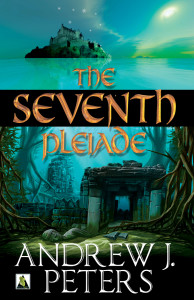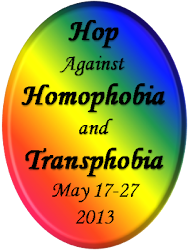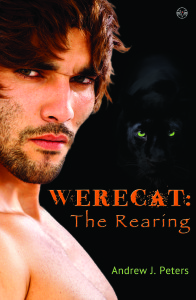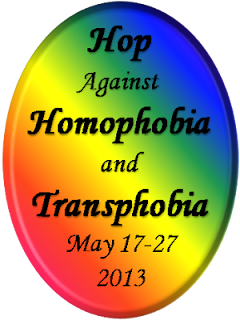Post Update: Huge thanks to everyone who stopped by during the week! I had a great time myself hopping around to the 100+ author blogs to read inspiring stories. My contest ended May 25th and the winner is: Marc! I will be in touch very soon.
There were lots of things I could have written about for this year’s HAHaT, which is a social media effort by authors to promote the International Day Against Homophobia and Transphobia. This year, the Hop coincides with a really special event in my life. So I decided to write something personal about that.
Many nice things have happened since The Seventh Pleiade came out last November. The most rewarding experience so far was being invited back to my high school to speak to students.

Amherst Central High School, retrieved from the Alumni Facebook page
Being a high school student was a fragmented experience for me as I suppose it is for many teenagers. On the surface, I was a generally well-liked honors student. I wasn’t part of the cool, popular crowd. That required earning at least one Varsity letter on one of the sports teams. But I eked out a group of friends, and there were a lot of good times both in and out of school.

Me, circa 1987, traveling around in a friend’s car on some lost night out in Amherst
I wrote for the high school newspaper. I competed in French and Latin and piano competitions. On weekends, there were house parties and sneaking into dive bars where local rock bands were playing. Sometimes, we just drove around in someone’s car with seven or eight people piled in. I even had an occasional girlfriend like a “normal” teenage boy.
Meanwhile, there was a phantom chasing me. That phantom made its appearance when I was thirteen or fourteen. I liked boys. Really, really liked boys. I knew right away this was not a good thing. This was back in the 1980s and in suburban Western New York. There were no gay people in that world, just a few individuals who were assumed to be gay because of the way they dressed or their mannerisms.
There was a history teacher who got made fun of a lot. There was a boy in drama club who got shoved into lockers by the jocks. Strangely, the gender-bending characteristics of the rock stars whose music we all loved at the time (Robert Smith, Freddie Mercury, David Bowie), seemed to go above people’s heads. They were cool, but not really understood in my neck of the woods.

Robert Smith of The Cure, who I was musically-obsessed with, but a little frightened by his androgyny
In any event, I wasn’t headed to a career as a British rock star. Being gay was not an option. I made a solemn pact: I would never speak about my attraction. I thought, hopefully, that ignoring that phantom would make it go away.
Around the time that gay phantom reared its head, I made a suicide attempt that no one knew about. Thank god I was able to pull myself together. After that, I was so successful denying my feelings and “playing straight” that I didn’t really suffer from depression or bullying in high school. It was in college when I confronted things and felt a lot of anxiety and despair. Fortunately, I sought out counseling and emerged empowered. I decided to live my life openly. Further, I was determined to pursue a career making things better for LGBT youth.
I used to regret having waited so long to come out. I’ve come around to realize that I made the best choices that I could at the time. If I had come out at Amherst High School, I think I would have been psychically and possibly physically trampled. My friends and my family were more enlightened than most. But I can’t imagine that I would have had the support I needed to declare myself and stand against the ignorance and cruelty of my teen world.
Today, Amherst High School has a Gay/Straight Alliance (GSA) club and the faculty advisor tells me that the school is a welcoming place for LGBT students and teachers. That’s incredibly gratifying to hear. Having worked with schools and communities to address homophobia, I know the challenges. I also know that many schools have come a long, long way. In most schools around New York State, it’s the norm, not the exception to have a GSA.
It’s hard for me to imagine what it would be like to relive my life as a gay teenager at Amherst High School today. There is something enticing about that idea. I would be free to live without the constant worry about people discovering the “defect” in me. I would be able to start dating people I really liked many years before I actually did. I would turn out to be a very different person.
On the other hand, I like the person I’ve become. I like the friendships I made while I was a closeted kid in high school. Some of those people turned out to be lifelong friends. I like the career I undertook that grew out of my struggle, and all of that journey that led me to my husband and the life we are making together.
So no regrets, Amherst High School. My experience in high school had a big influence on who I am today. Thanks for welcoming me back.

More recent pic of me with my husband Genaro
Now for the HAHAT giveaway! Just drop a comment below with your e-mail address, and I will pick a winner on May 25th 12:00am EST through random.org. The giveaway will be a copy of The Seventh Pleiade, and the winner’s choice of an autographed paperback or an e-book in her/his preferred format. 
Atlantis is besieged by violent storms, tremors, and a barbarian army. For sixteen-year old Aerander, it’s a calamitous backdrop to his Panegyris, where boys are feted for their passage to manhood.
Amid a secret web of romances among the celebrants, Aerander’s cousin Dam goes missing with two boys. With the kingdom in crisis, no one suspects the High Priest Zazamoukh though Aerander uncovers a conspiracy to barter boys for dark spiritual power. Aerander’s proof — an underground vault that disappears in the morning — brings shame on his family and suspicions of lunacy. The only way to regain his honor is to prove what really happened to the missing boys.
Tracking Dam leads Aerander on a terrifying and fantastical journey. He spots a star that hasn’t been seen for centuries. He uncovers a legend about an ancient race of men who hid below the earth. And traveling to an underground world, he learns about matters even more urgent than the missing boys. The world aboveground is changing, and he will have to clear a path for the kingdom’s survival.




